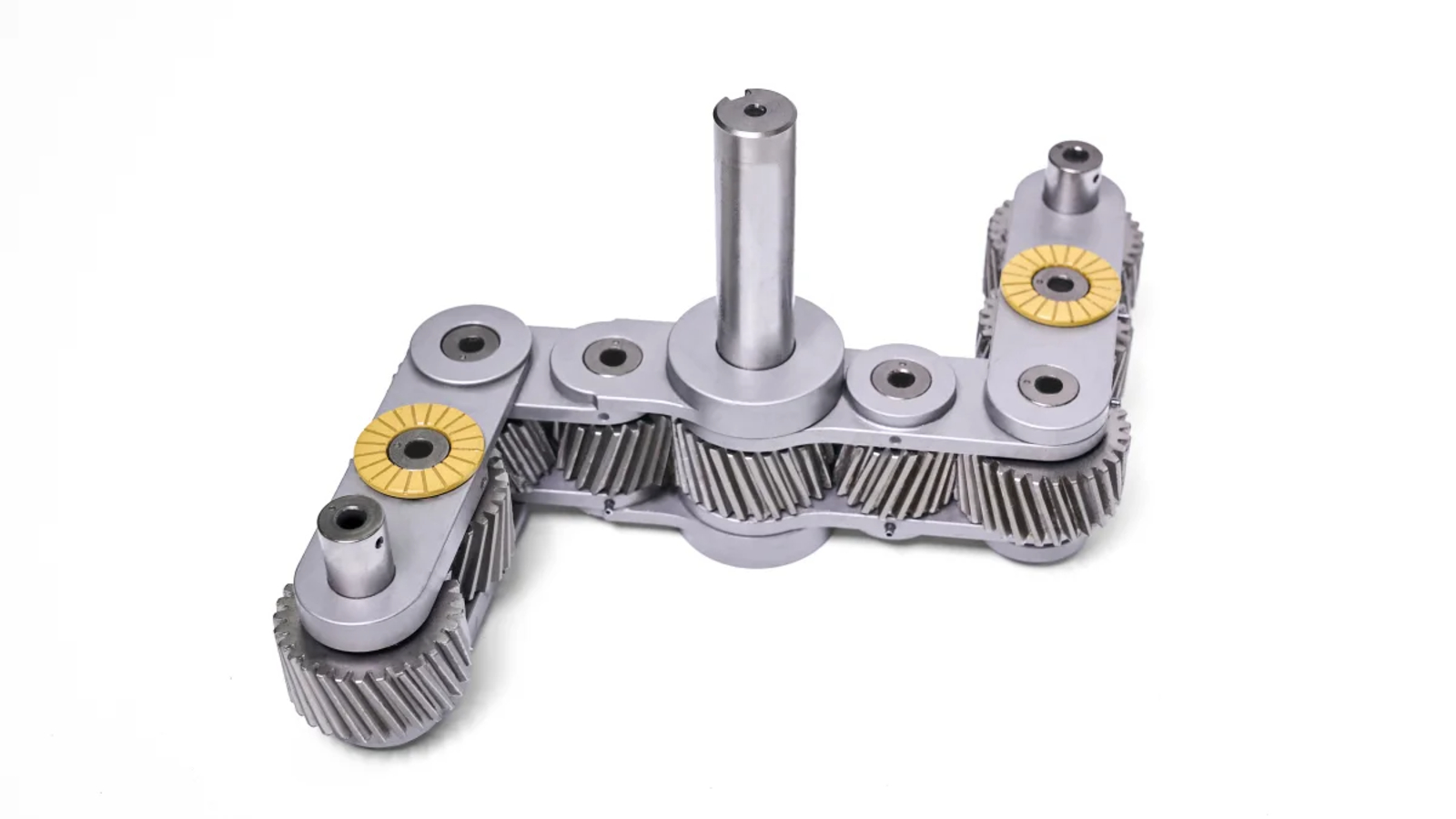Honestly I don’t care at this point, I won’t buy anything from Hyundai.
I haven’t been paying attention to Hyundai, what did they do?
Locally (Baltimore MD), in the city at least, there’s been a plague of car thefts for a while, specifically of Hyundai and Kia models. I forget the exact details, but there’s a software glitch that basically makes them child’s play to hotwire and roll off with.
Hello fellow Baltimorean!
A lot don’t have immobilizers (the thing that locks the steering wheel) and you don’t need even need to hot wire, just rip out the guard under the steering wheel and put a USB plug in and turn (the plug fits the hole). It’s pretty bad, and it became more known after TikTok started sharing how easy it was to do.
Immobilisers are electronic chips in the key and ignition that pairs when brought together to allow you to start the car. A steering lock, locks the steering wheel.
And they didn’t really do much of anything to rectify it.
It sucks, because they seem to be great reliable economy cars, otherwise, from what I can tell. The fact that they are stolen so easily has kept me from looking into purchasing one.
They’re not very reliable either, but as long as you get rid of it before the 10 year mark when the warranty on the drivetrain expires, they aren’t entirely a bad option if you want something cheap.
They sent me a claim form for a steering wheel lock. I traded the vehicle in for a Ford
Yeah I had heard about that. What a shit solution
Article made it sound like only front wheel drive exists now and that only front wheel drive cars use CV joints lol.
So how does it handle potholes?
you didn’t watch the whole video huh?
For some reason video wouldn’t play on mobile for me, if anyone had a similar issue here’s the link: https://youtu.be/Nd6C0y8xc20
Here is an alternative Piped link(s):
https://piped.video/Nd6C0y8xc20
Piped is a privacy-respecting open-source alternative frontend to YouTube.
I’m open-source; check me out at GitHub.
Video is like the worst possible way to demonstrate something.
I can’t watch a video at the moment as I’m busy not working. I need quiet text thanks.
Normally I’d agree with you, but the article goes to great lengths trying to explain the concept as text, but it’s damn near incomprehensible to non automotive engineers until watching the video.
The whole interior setup is flexible and can move around. I’m normally with you on my dislike for videos, but here a visual representation is really helpful. You can watch it without sound though, it’s self explanatory.
deleted by creator
Now thar Hyundai has patented it, it will never become popular enough to impact the market and be standardized in more vehicles or change anything, similar to the Wankel engine.
“Probably failed cuz they called it the wanker engine lmao. Now set aside another few milli for the copyright lawyers”
But capitalism creates innovation!!!
And regulations restrict both.
Cars should be able to pollute as much as the manufacturers want because innovation is all!
Some people argue that intellectual property law is not free market capitalism, and is instead a regulation that benefits big business. I’m one of those people
While I’d agree in essence, in practice I don’t. They’re an offshoot of capitalism. The goal of capitalism is profit, and if you can create barriers to competition, that protects your profit. IP law is something created out of capitalism as a barrier. If it isn’t the government doing it, it’d be goons hired by those in power. They exist because of capitalism, not from something external to it. If the system were focused on doing good or creating utility, IP law wouldn’t be required.
Free market and capitalism are mutually exclusive as in the theoretical model that is the free market, with perfectly rational actors and information, a capitalist class cannot exist, they’d quickly get competed down to size.
Unregulated markets and capitalism, now that’s a lovechild, as without regulation real-world markets quickly turn into monopolistic shark-tanks instead of free markets, actors not being rational, information not being perfect and all. The role of regulation, indeed the state, is to correct for that factor and make the real-world market approximate the free market.
(This view of the world brought to you by ordoliberalism, the only sane liberal economic theory there ever was or probably will be – because they actually managed to side with the free market, and not capitalism, as the rest of them).
similar to the Wankel engine
Was the Wankel engine really a step forward though? I’m a gearhead who does all his own car maintenance, up to and including engine swaps in the past and retro-modding bigger turbos and aftermarket fuel injection systems into my cars (Datsuns in the latter case). That being said, I only know the very basics about rotary engines. I’ve always admired the Mazda RX’s from afar.
Mazda, who by no means makes a bad gasoline engine, could never get a rotary motor to last well or to have anywhere near decent fuel economy. Also, the rotary design was tried for a while in at least refrigeration compressor applications, where it blew up there a lot more than the other types of compressors as well.
The argument is, though I’m not qualified to assess it, that Wankel engines are simpler, smaller, more power dense and, if allowed time to develop, would be an improvement on the traditional ICE. It’s very difficult to assess where we would have ended up and a little by the by, given we need to move away from burning fossil fuel.
That said, do check out LiquidPiston’s evolution of the Wankel engine. It does sort of look like they’ve solved a number of issues a traditional Wankel engine has.
It still has corners that need to have a moving seal. This is a huge issue.
if allowed time to develop
The basic problem with Wankels is that the geometry of the combustion chamber (such as it is) is constantly changing, which inevitably results in incomplete combustion compared to traditional ICEs. This leads to lowered fuel efficiency and greater emissions; the emissions problem is solved with an additional combustion chamber for the exhaust gases, but this consumes more fuel and lowers efficiency even more. It’s just a fundamental problem with the technology that no amount of development could ever fix.
Yea. They have worse efficiency. To get better efficiency from them you would need to run them hotter (afaik), and if you do that they would last even shorter.
It’s great if you want a smaller but still strong engine, but it’s not efficient and those seals are a big problem.
The problem with the rotaries is a result of the technology of the time and funding.
They are inefficient because they lose compressed fuel and air as the seals pass over the holes for the spark plugs, which can be largely solved with laser ignition. They are less reliable because of the design of the apex seals, which can be solved by using a roller instead of a blade. Both of those major issues with the rotary could not be solved with the technology of the 60s-00s and the tiny budget available. There are other issues that hold back the design, but those come down to metallurgy and manufacturing processes. Mazda did a great job trying to make the rotary work and it almost killed them.
The other issue that gives then an unreliable reputation is because you can’t treat them like a piston engine and people treat them like a piston engine. Hard to fault the knife for breaking when it was used as a pry bar.
which can be largely solved with laser ignition
hoo lee I’ve never even thought about that, that sounds sick as hell
Indeed, nothing that is patented ever makes it to market…
I know Hyundai is Korean and all, but this presentation style where the host pretends to be demonstrating a product “uh, wait a second . . . what if we” and is speaking almost like it’s a personal conversation between the two of you is giving me huge Nintendo Direct vibes when they demonstrate unreleased games and play them for you.
Is this a common sort of business/sales presentation method in SEA?
This is pretty cool!
But, in the video there is a quick flash of text that went away after 1s, 120km/h max speed?
they’re probably going to improve it further
Setting aside all of the already observed questions in the comments already about mechanical viability, i.e. how this assemblage is supposed to steer. The elephant in the room is whether or not this is equivalently economical to produce compared to an axle with a CV joint in it, and/or if it will acceptably reliable for roadgoing vehicle use, what with having a shitload more moving parts in there.
The animation shows the geartrain assembly in an open faced housing, which if that’s how it’s ultimately designed is going to mean that there is now no way to keep the gears in a bath of oil or transmission fluid like is presently done in traditional transmissions and differentials. And yes, even in CV joints which are packed with grease inside their rubber sealing boots. I’ll let you in on a big automotive industry secret: There’s a reason current transmissions and other geartrain devices are kept suspended in oil all the time. A big one. One that has to do with your transmission not glowing red hot by the time you make it to your destination, or converting itself into glitter within the first mile.
Even setting aside lubrication concerns – Maybe the thing is chock-a-block full of sealed ballraces or something, for all I know – the big open slot they depict for the axle to move up and down in is just begging for a stone, a stick, a stray bolt, or any other show-stopping piece of debris from getting in there and causing you to have a very expensive day. Ditto with the gap around the edge of the sun gear, which is going to need a bitchin’ huge mechanical seal on it at the minimum. If the solution is perhaps to put some kind of rubber boot over the opening that moves with the axle, it’s going to have to be ridiculously flexible and remain so even throughout all kinds of temperatures and operating environments. Cars, you know, being devices quite infamous for being operated outdoors in the weather and all.
I mean, I can’t imagine Hyundai’s engineers haven’t thought of this. But I wonder if this is one of those works-in-the-lab-and-test-track things, and they’re expecting someone else to figure out the viability challenges.
I’m in full agreement.
Expanding on your concern about the sun gear is what dirt, brine water/winter treatment will have on the mechanism over time. The best case scenario is this becoming more inefficient over time if it gums up, the worst case is having debris act like sandpaper on the gears, ever-so-slowly weakening the teeth over time.
Maybe they’ve thought of this but I can’t help but to think this is just trying to get a headline or two.
I guess this design would require a few seals to keep the mechanism bathed in oil and keep foreign contaminants out.
Is there enough oil volume to keep the mechanism cool at highway speeds?
And how do those tiny gears hold up to the loading? They seem a lot smaller than an equivalent pinion gear in a solid axle, for example And they were rather vague on their stress testing. Seemed like a bit like hand waving and “trust us bro”.
deleted by creator
Anyone remember the Hyundai debacle where the transmission gears stripped mid-drive? Yeah… I’m not trusting their gear-making ability (or lack thereof) with precision gears inside all of my wheels. Pass.
Hyundai doesn’t make gears, they buy them. Idk if they are buying them from the same distributor but I doubt it since that was a major issue.
I hope not. But with their track record, I wouldn’t put it past them. From my personal experience with them, I won’t trust them again.
Can we have more mechanical posts like this?
A new mechanical motion is a seriously big deal and doesn’t happen often.
This requires educated users in their professions to read the news and share it to the public for free when not being paid.
No, you need 555 posts about the shit that a billionaire said about stuff he knows nothing about
deleted by creator
On Monday I’m going to tell my boss to fuck off. He isn’t going to blackmail me into doing high quality work with money. Honestly, fuck off.
And then someone saying something about Linux
Be the change you want to see!!
From a mechanical standpoint, the new bearing saves a nearly negligible amount of space. Splitting the motor up and moving it to the notoriously wasted wheel well space is what clears up the center of the frame. Still very cool. It’s basically a single output differential, which is already quite compact. No need to split the rotation for turning since the wheels rotation will no longer be mechanically linked.
But eliminating the long half shaft that accompanies the CV joint is what allows that space to be used.
I mean you’re not wrong, but without separating the single motor to one at each wheel, you’d still have to translate the power from one point to each wheel. The uni bearing doesn’t provide that benefit. Separate motors DOES. And tuned and articulating short shafts are not a new thing. So even without this new bearing as long as you had separate motors for each wheel all you would have is a short CV shaft between the motor and the wheel. Hell why not save all of the space and just incorporate the motor into the hub??? Since BDC motors are more efficient when wider and smaller, it would be very easy to fit them within current day hubs.
I mean, don’t get me wrong, I honk for planetary gear designs every time. So I’m not knocking this design. It’s simple, machinable, and direct. It’s brilliant for what it is. It’s just not the space saver that they are touting it to be. The video literally showed two seats side by side with a bed in the back. Unless kia started making a suburban, I’m just not that naive.
Having these gears in the hub instead of a motor would decrease unsprung weight.
The gears are necessary to allow the wheel to move without having to move the input shaft.Edit: sorry, I misunderstood your comment. I agree.
Somehow I thought you’re saying the gears should be attached to the motor.
I didn’t think about that. Thanks for pointing it out.
It directly replaces the CV, so it’s the thing saving the space. Sure, if there was still only one motor, and a shaft connecting the two sides, less room would be available. But the space saving, and the reason why splitting the motor in two makes sense in the first place, is the uni wheel.
Also, yes, there are shorter CV joints, but they lose efficiency the shorter they are, because they need to translate through larger angles.
As to why putting the entire motor into the wheel isn’t a great idea for cars is because you want to keep as much weight of the vehicle on top of the suspension. If the motor is in the wheel, ride quality will suffer due to the increase of unsprung weight.
Ah, really good points. Thanks for the perspective. My expertise (if I may so generously call it that) ends at the manufacture and assembly processes. Thanks for the perspective.
Honestly, I get most of my knowledge from watching a bunch of youtube videos, so it’s not like you’re talking to an engineer or anything haha
But I do usually like to pick out the more technical videos, explaining the theory behind all this, so I guess I picked up on some things ^^
Expected a monowheel got something about cars. Blegh.
I think it’s actually pretty cool. Takes the sprung weight of an electric motor and reduces it’s footprint significantly allowing for more range in electric vehicles because now that footprint can be used for batteries. And it doesn’t sacrifice driveability or comfort? Kind of revolutionary. If it allows for streamlining of manufacturing it could help bring down the cost of electric vehicles which would make them more palatable for people who don’t live in the most ideal place for an electric vehicle. Especially with increased range. It would also allow for hopefully less moving parts that fail and need to be replaced.
Almost no vehicles have unsprung motors anyway.
Because it throws things out of balance a lot of the time and causes damage to the components.
My 50cc scooter does! And I guess technically my electric bicycle does too, because it’s got a rear wheel hub motor and the wheel is on its own suspension independent of the frame.
…That’s about all I can think of off the top of my head, actually.
What makes you think a monowheel could be remotely preferable to cars in any possible way, whether from an individual or societal perspective?
Cars are never going away entirely, and no one wants them to.
If we can make them better… then that’s great
no one wants them to
Well, some people do… but those people are out of touch with reality.
I have one word for those people:
Ambulance.
I don’t want to get rid of cars as a technology, just privately owned passenger cars.
deleted by creator
Reality is what we make it. Fuck cars
Nah they’re great. And they’re not going away, thankfully.
Certainly with the reality of suburban life in the US.
I’m glad you said it this time. My fingers are starting to get tired from harping on them all the time.
And I will fight you before you confiscate my last motorcycle.
deleted by creator
My completely unfounded hypothesis is that a lot of these guys are just all sour grapes because they are in a position wherein they can’t afford a car (or a motorcycle, or whatever). So they think everyone else should be miserable like them, too.
The environmental aspects I get, but I also get the feeling that’s actually just a post-hoc rationalization to the whole no-personal-transportation sect.
I had three cars and a motorcycle at one point, though now I’m down to one car and a bicycle. But whatever makes you feel superior, I guess. Fuck the people with legitimate ideas to improve life and the environment.
deleted by creator
The explaination of how differentials work was painfully wrong. An I lost confidence in this author’s ability to explain the topic.
Came here to say this.
It was sooooo wrong. Painful is right.
Ok. Care to elaborate, please?
That was awesome and perfectly explanatory. I learned something new today
There’s a bunch of old training vids like that on YouTube. Lots of people could learn how to present from them - they’re so much better than most stuff on YouTube.
There are a lot of these from back in the couple of decades after WWII when society actually cared about science and knowledge and companies used the spreading of knowledge as a selling point.
I knew exactly which video that would be. Such a perfectly clear explanation.
Here is an alternative Piped link(s):
https://piped.video/yYAw79386WI
Piped is a privacy-respecting open-source alternative frontend to YouTube.
I’m open-source; check me out at GitHub.
Perfecter
Perfect
Apparently I can watch that video every couple months and still be equally amazed by it.
Please remind me to watch this again in a few months, it’s super cool.Right?
I’m continually blown away at what 19th-century engineers understood and could do.
https://upload.wikimedia.org/wikipedia/commons/3/3e/Around_the_Corner_(1937)_24fps_selection.webm
Wiki to the rescue!
It’s a great video from 1937.How the automobile differential allows a vehicle to turn a corner while keeping the wheels from skidding. Reverse telecine & introduction edited out.
And the article has info as well https://en.m.wikipedia.org/wiki/Differential_(mechanical_device)
Modern cars have “traction control”, which detects when a wheel turns more than the other wheel. If it turns too much more, it will engage a “diff lock” and lock the differential which makes each wheel turn with the same power/speed/energy as if the differential was just a solid axle.
The long & the short of it is that a differential is only “1 wheel drive” when the differential “thinks” (it’s not smart) it should put all the power into 1 wheel - which is when the cars computer locks the differential.
That’s only some cars.
Many today still use open diffs. Some use open diffs and braking to produce a result that looks like traction control or a torque biasing diff.
Some cars use electronically-controlled diffs that can vary pressure on clutches using simple electric servos to bias torque - Bendix is a big supplier of such things to companies like Honda.
Others use hydraulics, similar to torque converters, to bias torque (e.g. Audi’s original Quattro system).
And others use gearing to bias torque, such as Quaife differentials.
Factory systems (with rare exceptions) don’t use locking diffs (GM has one as an option, others may).
Please forgive my laziness - https://chat.openai.com/share/45e326f5-1653-4c51-b057-b36326963559
Another advantage of putting drivetrain components in the wheel is you can just swap them out easily rather than having to tear the engine bay apart. Really outstanding work!
On the other hand, if you hit a pothole is it gonna completely fuck up your engine? I know they mentioned stress tests, but that would worry me.
That was my thought as well. The pinion gear linkage looks comparatively fragile with its smaller gears and levers. Smacking a deep pothole at speed would likely cause the pinion gear to smack against the wheel, which wouldn’t be good.
Yeah, I think they can solve those problems but I don’t want the first or second generation























